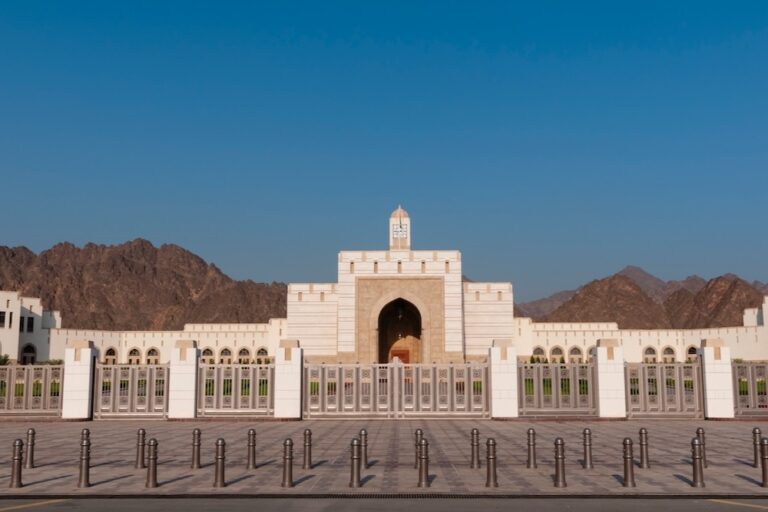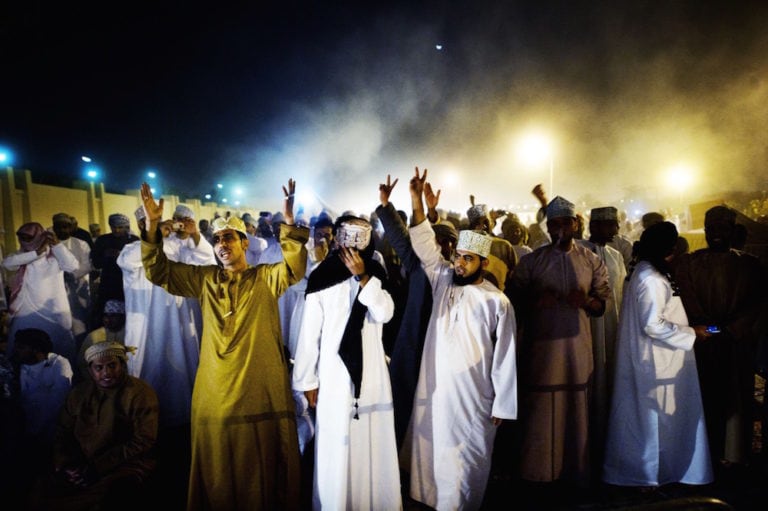Oman has been the site of a major crackdown since the end of May 2012, which has included arrests of dozens of writers, human rights defenders, judges, and pro-democracy activists.
(CIHRS/IFEX) – 18 December 2012 – The Cairo Institute for Human Rights Studies (CIHRS) expresses its grave concern over the recent crackdown on, arrests of, and prison sentences against the activist and pro-democracy community in the Sultanate of Oman.
Since February 2011, Omanis, inspired by the wave of pro-democracy popular demonstrations throughout the Arab region, communicated their aspirations for a more democratic country that respects their basic freedoms and human rights through a series of demonstrations and sit-ins. In response, the Omani government has used repressive means to undermine the legitimate rights of Oman’s citizens to assembly and association. Indeed, since the end of May 2012, the country has witnessed a wave of repressive actions including arrests of dozens of writers, human rights defenders, judges, peaceful protesters and pro-democracy activists.
On 12 December 2012, the Appeals Court upheld a one-year prison sentence issued by the Muscat’s Court of First Instance against 11 activists based on charges of defamation of the Sultan and violations of Oman’s information crimes law. Additionally, Judge Hamoud Bin Saoud Bin Hamdan Al Rashidi received a six-month suspended sentence based on charges of defaming the Sultan.
On the same day, the Appeals Court also upheld six-month prison sentences originally issued by the Court of First Instance against 11 other activists, including human rights defender Mukhtar Mohamed Seif Al-Hinaei and other women human rights defenders, also based on charges of illegal gathering. On 19 December, the Appeals Court will review another case against Al-Hinaei, after he was sentenced by the Court of First Instance to an additional year in prison on charges of defaming the Sultan.
On 5 December 2012, the Appeals Court in Oman upheld prison sentences (varying between 12-18 months) against five more activists based on politically motivated charges of defaming the Sultan and violating Oman’s information crimes law for having publishing information on social media websites that was seen as defaming the Sultan. The activists had originally been found guilty by the Muscat Court of First Instance and released pending the recent decision of the Court of Appeals. The Court of Appeals also upheld a one-year suspended prison sentence and a fine of 1500 Riyals against Maymouna El Badi based on the same charges.
The recent series of trials against activists in Oman started in May 2012 with the arrest of the three human rights defenders from the Oman Group for Human Rights as they were monitoring a protest site in their capacity as rights defenders. The situation further escalated following a concerning statement issued by Oman’s Public Prosecutor on 13 June 2012 threatening legal action and prison sentences against activists practicing their right to freedom of opinion and expression. This statement was immediately followed by the arrest and trial of dozens of activists, including writers, bloggers, rights defenders and protesters, on charges of defaming the Sultan over social media websites, violating the information crimes law, participating in illegal gatherings, and obstructing traffic.
The arrest and charging of activists are facilitated by an arsenal of repressive laws, including Royal Decree no. 96/2011, issued on 13 October 2011 in the wake of a year of protests calling for democratic reforms in the Sultanate, which amended the Omani Penal Code and Penal Procedures Law to make additional acts punishable under the law, including by criminalizing “publishing false news, statements or rumors liable to incite the public or undermine the prestige of the state or weaken trust in its financial state” (Article 135 of the Penal Code).
The Royal Decree also stiffened criminal penalties, as Article 137 of the Penal Code now imposes prison sentences ranging from one month to a year and a monetary fine for the “crime” of participating in an assembly of 10 or more people liable to disturb the public order. The same article further elaborates that if violence was used, the prison sentence is to be no less than six months and not more than three years. Additionally, Article 42 of the Penal Procedures Law was amended to allow the arrest and detention of individuals without an arrest warrant from the public prosecution. It is worth noting that Oman is not a party to main international human rights treaties including the International Covenants on Civil and Political Rights and Economic Social and Cultural Rights, Convention Against Torture and their affiliated optional protocols.
The current restrictions and repression of civil society and rights advocates in Oman, in addition to the authorities’ refusal to legally recognize the establishment of any group that works on issues of human rights and democracy independently of the government, cast serious doubts over the possibility of creating and sustaining a vibrant civil society in the Sultanate. Additionally, the ongoing wave of arrests conducted by the Omani authorities and the statements issued by the public prosecution indicate that a deliberate decision has been made to crack down on all voices of opposition in the country.
CIHRS therefore calls upon the government of Oman to respect its people’s legitimate aspirations by engaging in genuine democratic reforms instead of cracking down on reform advocates. CIHRS additionally calls on the Omani government to immediately release all activists currently detained for the sole reason of exercising their rights to freedom of opinion, expression, and assembly and that all politically motivated charges against them be dropped.
Furthermore, CIHRS urgently calls upon the European Union Missions, including embassies of EU member states in Oman, to put into practice the EU Guidelines on Human Rights Defenders and to effectively monitor tomorrow’s trial of Mukhtar Al Hinaei.


